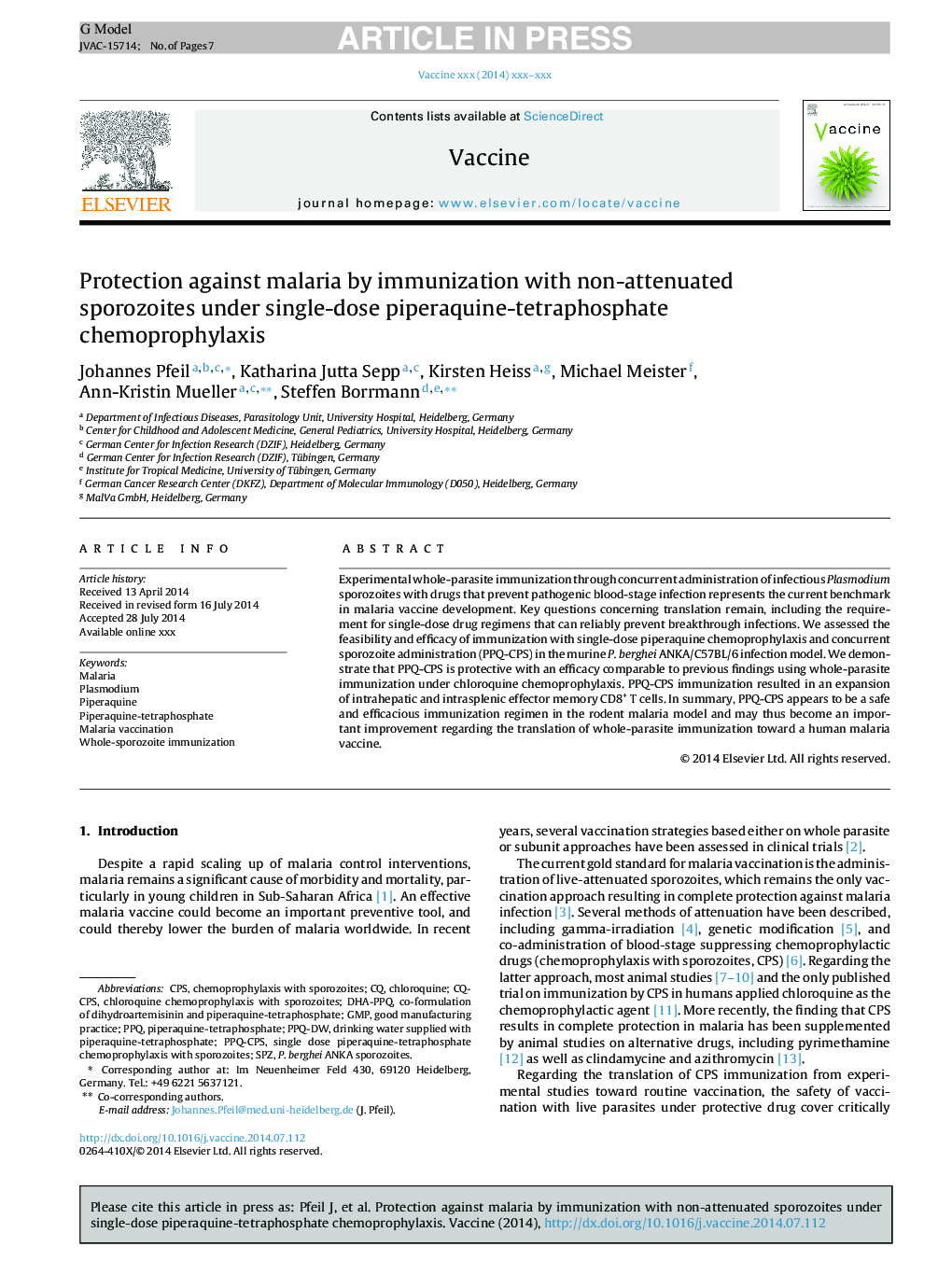| Article ID | Journal | Published Year | Pages | File Type |
|---|---|---|---|---|
| 10965799 | Vaccine | 2014 | 7 Pages |
Abstract
Experimental whole-parasite immunization through concurrent administration of infectious Plasmodium sporozoites with drugs that prevent pathogenic blood-stage infection represents the current benchmark in malaria vaccine development. Key questions concerning translation remain, including the requirement for single-dose drug regimens that can reliably prevent breakthrough infections. We assessed the feasibility and efficacy of immunization with single-dose piperaquine chemoprophylaxis and concurrent sporozoite administration (PPQ-CPS) in the murine P. berghei ANKA/C57BL/6 infection model. We demonstrate that PPQ-CPS is protective with an efficacy comparable to previous findings using whole-parasite immunization under chloroquine chemoprophylaxis. PPQ-CPS immunization resulted in an expansion of intrahepatic and intrasplenic effector memory CD8+ T cells. In summary, PPQ-CPS appears to be a safe and efficacious immunization regimen in the rodent malaria model and may thus become an important improvement regarding the translation of whole-parasite immunization toward a human malaria vaccine.
Related Topics
Life Sciences
Immunology and Microbiology
Immunology
Authors
Johannes Pfeil, Katharina Jutta Sepp, Kirsten Heiss, Michael Meister, Ann-Kristin Mueller, Steffen Borrmann,
